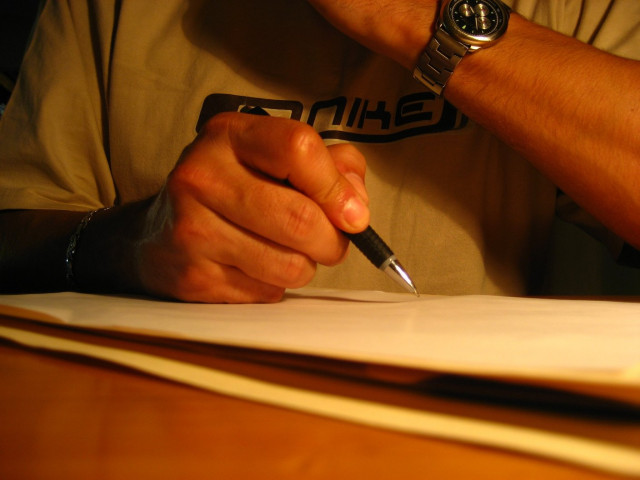US funding for Pakistani journalists raises questions
US State Department supports the presence of two Pakistani journalists in US.

Two Pakistani journalists filing reports home from Washington are drawing their salaries from US State Department funding through a nonprofit intermediary, highlighting the sophisticated nature of America’s efforts to shape its image abroad, The Christian Science Monitor reported on Friday.
Neither of the two media organisations, Express News and Dunya News, discloses that their reporters are paid by the nonprofit America Abroad Media (AAM) on their websites or in the reports filed by their correspondents. Though the journalists have worked under the auspices of AAM since February, AAM only made their links to the news organisations known on their website Wednesday, after being contacted by the Monitor.
“If an American journalist working as a foreign correspondent in Pakistan was paid in a similar manner, would it be morally or professionally acceptable for his news organisation or audience?” asks Badar Alam, editor of Pakistan’s English-language Herald magazine.
The amount currently allocated for the project is some $2 million over two years from the public diplomacy funds allocated by the State Department, according to State Department officials in Washington familiar with the project. That includes salaries for the two correspondents – Huma Imtiaz of Express News and Awais Saleem of Dunya News and a bureau for both TV channels.
Aaron Lobel, president of AAM, says his organisation receives donations from a number of private funders, too, which it mainly spends on its programs on international affairs that run on Public Radio International in the United States.
“The content production is done first and foremost [by] Pakistanis who are here and work with their channels back home to produce content,” says Lobel.
Sometimes the Pakistani journalists and editors at home come up with stories. But AAM also holds production meetings where the group’s managing director, Aliya Salahuddin, suggests stories, says Lobel.
“I understand the fears that define the joint ventures that comprise the US-Pakistan relationship. [But] we are very proud we have a good relationship with Dunya and Express. It allows Pakistani journalists to cover the US with a Pakistani perspective. I haven’t encountered any Pakistani channel that doesn’t want to work with us,” he says, adding that AAM is hopeful of partnering with more Pakistani channels in the future. Both reporters cover a wide variety of stories.
Making a clear connection
AAM’s ombudsman, Jeffery Dvorkin, insists there is no US government involvement with content production.
“My role as ombudsman is to help AAM ensure there is no effort by its funders, including the government, to interfere with any of the content produced. Thus far, there have been no efforts of this kind. Secondly, AAM continues to make it clear to the government and to all funders that in order for AAM to proceed with this initiative, the government could have no involvement in content production or selection,” he says.
The State Department official counters that both the US government and AAM ‘encourage’ the channels to make their ties clear. “We’re very proud of this program,” the official says. But eight months into the program, officials from AAM had not reached out to the channels regarding disclosure.
The official notes that this is part of a broader effort to reach out, including bringing Pakistani journalists to the US for short visits under the International Visitor Leadership Program.
Defending his newspaper’s decision not to disclose the source of Imtiaz’s funding, The Express Tribune’s [executive] editor Muhammad Ziauddin told the Monitor: “The lady reports in conjunction with the [nongovernmental organisation AAM]. The lady has been recruited by us in consultation with the NGO in a way we do not need to mention this. By putting that line we would be putting this into perspective but since we already edit [her stories] according to our thinking we do not need to. Editorially we sensitise it to a great extent.”
He adds that the process of building links with government officials is commonplace the world over. “I know a number of instances where a correspondent has landed in Pakistan and has been won over by our own information departments and briefed by our government agencies. Obviously they would like to keep his sources intact and at times he or she obliges [the government].”
Ziauddin adds that the partnership was conducted ‘as an experiment’ and in the future the newspaper intends to pay for its own correspondent in Washington, just as they do in London.
Awais Saleem, chief operating officer of Dunya News, also stated that since final control resided with the channel, they did not feel the need to declare the partnership with AAM to their viewers.
Published in The Express Tribune, September 3rd, 2011.



















COMMENTS
Comments are moderated and generally will be posted if they are on-topic and not abusive.
For more information, please see our Comments FAQ